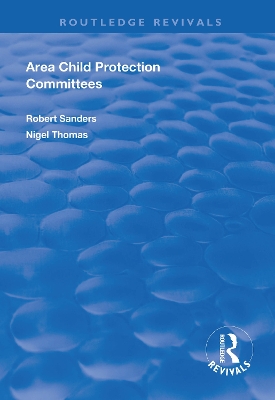Routledge Revivals
2 total works
First published in 1997. Area Child Protection Committees are at the heart of interagency child protection services in Britain. Drawing on original research, this book provides the first detailed analysis of ACPs and how they operate. The authors examine the policy role of the committees, the processes of representation, and the effectiveness of the committees’ work both in directing practice and in responding to change. They also report on research into how ACPCs deal with cases that go wrong. The book considers the impact both of agency reorganisation and of changes in child care policy on the work of the committees, and includes an account of the development of children’s service plans.
If child protection policy is to change its direction, then ACPCs will have to change too. This book aims to contribute to an understanding of how that can happen.

